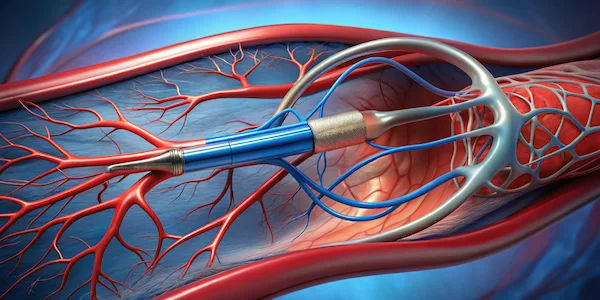GTT Full Form Explained
Discover the full form of GTT and its critical role in medical diagnostics. Learn what a Glucose Tolerance Test (GTT) is, why it's performed, and what the results indicate about your glucose metabolism and diabetes risk.

Written by Dr. Mohammed Kamran
Reviewed by Dr. Shaik Abdul Kalam MD (Physician)
Last updated on 13th Jan, 2026

Introduction
If you've come across the term GTT and are wondering what it means, you're in the right place. GTT stands for Glucose Tolerance Test, a common medical test used to check how your body processes sugar (glucose). It helps diagnose conditions like diabetes, prediabetes, and gestational diabetes (diabetes during pregnancy).
In this article, we’ll break down everything you need to know about the GTT test—why it’s done, how it works, what to expect, and how to prepare for it.
What Is a Glucose Tolerance Test (GTT)?
The Glucose Tolerance Test (GTT) measures how well your body handles sugar after consuming a glucose drink. It helps doctors determine if your blood sugar levels are normal or if you have insulin resistance, prediabetes, or diabetes.
Why Is GTT Done?
To diagnose Type 2 diabetes or prediabetes (when blood sugar is higher than normal but not high enough for diabetes).
To check for gestational diabetes in pregnant women (usually done between 2428 weeks of pregnancy).
To monitor how your body responds to sugar if you have symptoms like frequent urination, excessive thirst, or unexplained weight loss.
How Does the GTT Test Work?
The test involves multiple blood sugar measurements before and after drinking a glucose solution. Here’s what happens:
Before the Test (Preparation)
Fasting Required: You’ll need to fast (no food or drinks except water) for 812 hours before the test.
Avoid Certain Medications: Some medicines (like steroids) can affect results, so inform your doctor.
Stay Relaxed: Stress and illness can impact blood sugar, so try to stay calm.
During the Test
1. First Blood Sample (Fasting Glucose): A nurse will take your fasting blood sugar level.
2. Glucose Drink: You’ll drink a sweet glucose solution (usually 75g or 100g of glucose).
3. Waiting Period: You’ll wait for 12 hours (sometimes longer) without eating or drinking.
4. Second Blood Sample: Another blood test is taken to check how your body processed the glucose.
After the Test
You can eat and drink normally.
Some people feel dizzy or nauseous after the glucose drink, but this usually passes quickly.
Understanding Your GTT Results
Your doctor will compare your blood sugar levels at different times to see if they fall into:
| Condition | Fasting Blood Sugar (mg/dL) | After 2 Hours (mg/dL) |
| Normal | Below 100 | Below 140 |
| Prediabetes | 100-125 | 140-199 |
| Diabetes | 126 or higher | 200 or higher |
For Gestational Diabetes: Different thresholds apply, and your doctor will explain the results.
Who Should Get a GTT Test?
You may need a GTT if:
You have risk factors for diabetes (family history, obesity, high blood pressure).
You’re pregnant (to check for gestational diabetes).
You have symptoms of diabetes (fatigue, blurred vision, slow healing wounds).
Get Your Symptoms Checked By Top Specialists
Tips for Managing Blood Sugar Levels
If your GTT results show prediabetes or diabetes, don’t worry—many people manage it well with lifestyle changes:
Diet Tips
Eat balanced meals (whole grains, lean protein, healthy fats).
Avoid sugary drinks (soda, fruit juices).
Control portion sizes to prevent blood sugar spikes.
Exercise Regularly
30 minutes of walking, swimming, or yoga daily helps improve insulin sensitivity.
Monitor Blood Sugar
If diabetic, check the levels as advised by your doctor.
Stay Hydrated & Reduce Stress
Drink plenty of water.
Practice relaxation techniques like deep breathing.
When to See a Doctor?
If you experience:
Extreme thirst or hunger
Frequent urination
Unexplained weight loss
Blurred vision or fatigue
Consult a doctor and consider booking a GTT test to check your blood sugar levels.
Book a GTT Test with Apollo 24|7
If you need a Glucose Tolerance Test, you can easily schedule a test or consult a diabetes specialist through Apollo 24|7.
Final Thoughts
The GTT test is a simple yet important way to check for diabetes and other sugar-related conditions. Early detection helps in better management and prevents complications. If you’re at risk, don’t hesitate to get tested and take control of your health!
Stay informed, stay healthy!
Consult Top Specialists
Get Your Symptoms Checked By Top Specialists

Dr. Rajib Ghose
General Physician/ Internal Medicine Specialist
25 Years • MBBS
East Midnapore
VIVEKANANDA SEBA SADAN, East Midnapore

Dr. Ajay K Sinha
General Physician/ Internal Medicine Specialist
30 Years • MD, Internal Medicine
Delhi
Apollo Hospitals Indraprastha, Delhi
(200+ Patients)
Dr. Indrajit Das
General Physician/ Internal Medicine Specialist
4 Years • "MD (Internal medicine) : Gauhati Medical College and Hospital, Guwahati (2018-2021) MD (Pathology) : Gauhati Medical College and Hospital, Guwahati (2012-2015) MBBS (Bachelor of Medicine, Bachelor of Surgery) : Silchar Medical College, Assam (2003-2008) "
Guwahati
Apollo Excelcare Hospital, Guwahati

Dr. Mohammed Sharouk Khader
General Physician/ Internal Medicine Specialist
11 Years • MBBS, Bach. of Med. & Surg., Dip. of American Board of Family Med.
Chennai
Apollo Hospitals Greams Road, Chennai
(125+ Patients)

Dr. S Ananth Kumar
General Physician/ Internal Medicine Specialist
41 Years • MBBS; MD
Hyderabad
Apollo Hospitals Jubilee Hills, Hyderabad
(125+ Patients)
Consult Top Specialists

Dr. Rajib Ghose
General Physician/ Internal Medicine Specialist
25 Years • MBBS
East Midnapore
VIVEKANANDA SEBA SADAN, East Midnapore

Dr. Ajay K Sinha
General Physician/ Internal Medicine Specialist
30 Years • MD, Internal Medicine
Delhi
Apollo Hospitals Indraprastha, Delhi
(200+ Patients)
Dr. Indrajit Das
General Physician/ Internal Medicine Specialist
4 Years • "MD (Internal medicine) : Gauhati Medical College and Hospital, Guwahati (2018-2021) MD (Pathology) : Gauhati Medical College and Hospital, Guwahati (2012-2015) MBBS (Bachelor of Medicine, Bachelor of Surgery) : Silchar Medical College, Assam (2003-2008) "
Guwahati
Apollo Excelcare Hospital, Guwahati

Dr. Mohammed Sharouk Khader
General Physician/ Internal Medicine Specialist
11 Years • MBBS, Bach. of Med. & Surg., Dip. of American Board of Family Med.
Chennai
Apollo Hospitals Greams Road, Chennai
(125+ Patients)

Dr. S Ananth Kumar
General Physician/ Internal Medicine Specialist
41 Years • MBBS; MD
Hyderabad
Apollo Hospitals Jubilee Hills, Hyderabad
(125+ Patients)




